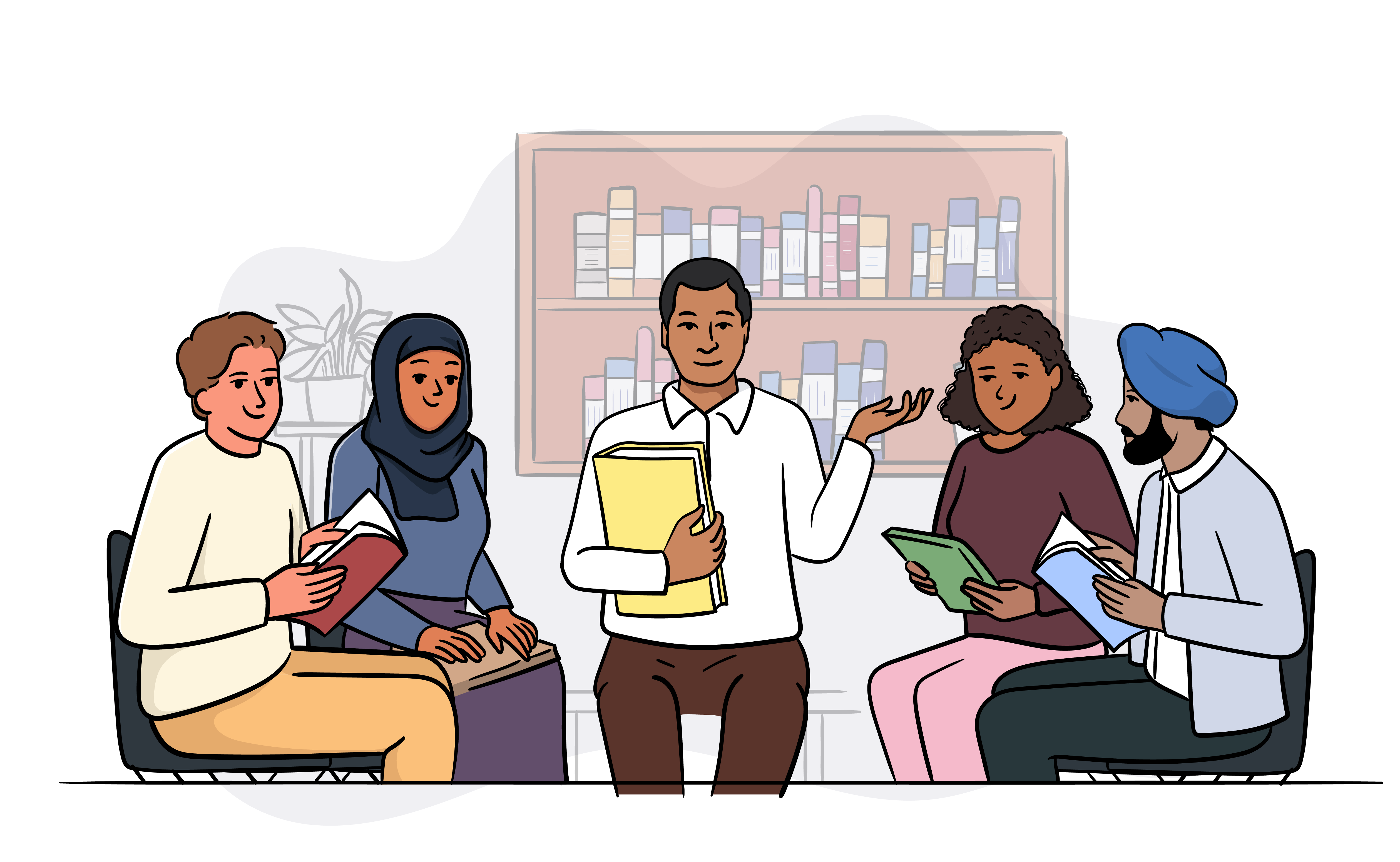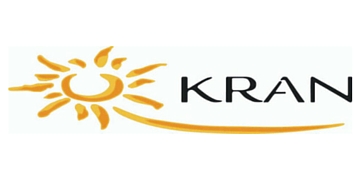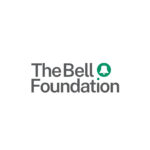In Conversation | Overcoming Language Barriers When Newly Arrived
Rishan and Djafarou, from Kent Refugee Action Network (KRAN), spoke about their experiences since arriving in the UK and the importance of language support.
Many refugee and asylum-seeking young people who arrive in the UK are unable to access statutory education for up to a year upon arrival. Kent Refugee Action Network (KRAN), one of our partners, is an organisation seeking to plug the gap, providing these young people with the language and life skills they need to access and thrive in education.
Rishan, Media Ambassador at KRAN, spoke with Djafarou, a trainee colleague, about the impact that this support has had on them, their experience of learning English in the UK, and their ambitions for the future.
Rishan: Hi Djafarou. So, tell me about your role at KRAN - when did you start working with them?
Djafarou: I came to this country [in] 2019 and my social worker informed me about KRAN. Since then, I turned to KRAN as a student, as [a] service user, and then [in] 2023, I [became a trainee], but of course I'm hoping to become, like you, an ambassador here in KRAN.
R: So, what was the main thing that made you continue? At the beginning it was your social worker, but what was the main thing that made you go back to KRAN?
D: I feel like I always get the help I need and [that] KRAN is always here for me. For example, if [KRAN was] not here then there [are] lots of thing I [would] struggle with, including my education. Also, [being able to get] in touch with my solicitor and help me with my Home Office case. All this stuff.
R: [Similar] to your experience, this has happened exactly to me. I'm from Eritrea but I grew up in Sudan, so English wasn’t my first language. [My foster carer] took me to KRAN, and there I met other young people similar to my age and started with the basic English. KRAN was like my family, so I always go back to it!
D: Yes. I think even now… like, I'm settled, independently doing things by myself but I still go back to KRAN. I always ask for help. It's like a child that goes to their mum and dad, whatever age they are.
And now, that's [the] reason I feel that some young people may also need my support. Working in KRAN will help me to be able to get in touch with the young people to support them and to give them some advice or help.

R: And I guess a lot of young people, when they see similar [people] like you and me that are working [for] KRAN, they feel more relaxed to speak about themselves.
KRAN allows us to understand that we're not here as we want things from the Government, or we want things from the country. We have a potential and we give back to our society. In KRAN, I feel like I have a purpose, like I have something that I do provide, and I have the knowledge or the skill that could also support other people. I guess that's why, even after [finishing my university nursing], I still want to work with KRAN.
So, Djafarou, when you came here, English wasn’t your first language. What other languages do you speak?
D: Hausa and Zarma – those two languages are [spoken in] my country. But [I] also speak French because it's [the] official language. I also speak a little bit [of] Arabic because [in my country I studied Arabic in school], so I know how to read and how to write in Arabic.
When I came to this country, English language [was] my first priority...So I have to push myself and take every opportunity I get.
KRAN [helped] me get my English level. When I came to this country, English language [was] my first priority because obviously [in] this country the only language I speak is English. So I have to push myself and take every opportunity I get.
R: [In Eritrea] the main language is Tigrinya. But because I grew up in Sudan, my first language is Arabic.
Back in Sudan, I [listened] to all the kind of Chris Brown, Rihanna, [and] the movies. So, I used to understand [English] with a subtitle, but then because you don't have someone to speak to, you don't have the ability to speak.
I didn't have someone to confirm what does that mean, so I was like there's so many [swear words] that I was [learning] but when I came here, I'm like “no, Rishan, you can't say that”!
One of the tricks that [my foster carer] used to do, because when I came, it was [the school holidays], so everything [was] closed, every day at 7 o'clock, whenever there is Emmerdale, we sat together and then she would say to me “what [are] they saying?”, and then after that we [started] talking.
In KRAN, we have a mentor scheme where a volunteer joins with a young person and they practise English. Some people, they do understand what [the mentor] says, and they can say it, but [have] that kind of shyness or not [being] sure if [it’s] right or wrong. So, it's to have that confidence – that really helped me, having that time with my foster carer. I think any person needs someone to practise with.
D: Yeah. Sometimes if, for example, I [have] some word I didn't know I just write it down, and then when I [go to the] meeting with [the mentor], I just [sit] down with her and then go “[this] word I saw in English but I don't know exactly the meaning”, write down the meaning exactly and then “how do we use it?” I feel like that's really helpful to me.
R: So, what do you think are the main benefits of speaking more than one language?
D: I think it does really help you. I [felt] like when I came to [the] UK, I'm the only one who [speaks] Hausa and Zarma. And all [the] young people I [saw were] from Sudan, Eritrea. They all speak Arabic. I managed to communicate with them [in] French and the little Arabic I speak.
R: I think that's [the] main thing too. I mean, to have that kind of connection with other people and to have the communication. Yeah, it is [a] really good key skill… My friends from Eritrea, they'll be like “oh you're so lucky you speak Arabic. You can communicate with people from Syria, and you can talk this, and you can understand us”.
I think that's [the main benefit of speaking more than one language] too...to have that kind of connection with other people and to have the communication...it is [a] really good key skill.
Are there any phrases or words or anything like that in your first language that you found difficult to translate or don't really exist in English?
D: For me, yes, there is some words in my language, even in French I don't know how to say them.
R: Yeah, I guess the beauty of English is that you can use some metaphors and you can use some, like, personification. All of these things, we don't have. If I said [a] metaphor, my friend would be like, “don’t say it, like it doesn't make sense!”.
D: That's true. There [are] some words if I want to translate to English, I feel like it doesn't make sense. If you listen [to a song], it's really nice if you listen to [the] language. But I feel like it doesn't make sense at all [in English].
R: I think I'm still learning even now. Phrases in English like let's say “I wake up in the wrong side of the bed” or something. I'm like, “what does that mean?” Like “raining cats and dogs”, I understand [the words], but what is the meaning?
So, Djafarou, beside your role with KRAN, what course or other job would you like to do?
D: [I’m] still in college [and I’m also] applying for university, hopefully a business course.
R: I want to finish my university, but for now I just want to focus [on] my job here. I'm in my final year of student nursing, so I'll be finishing by July. I've been offered a job [as a nurse]. I'll be working part time at the hospital and then part time in KRAN.
With a new Government in post, we asked Rishan and Djafarou what their key ask to the Government would be.
R: I would say understanding what other factors that could be a barrier for someone to learn the language. The reason I'm saying that [is] because every young person who [performs] the journey, there's so many mental health issues, [feeling isolated] and feeling the [absence] of family.
It's not just the learning aspect of it. Let's say in school or college there is a service for mental health. If I don't understand the language, I wouldn't understand there is a service that could support.
[Also], having the ESOL classes after even the course [finishes] because I used to go back again and again and again even after I'd done my Level One and Level Two English, I still go back for the ESOL classes.
About this partner

Our vision is for young people seeking asylum in the UK to be safe, belong and build hope for a better future.
